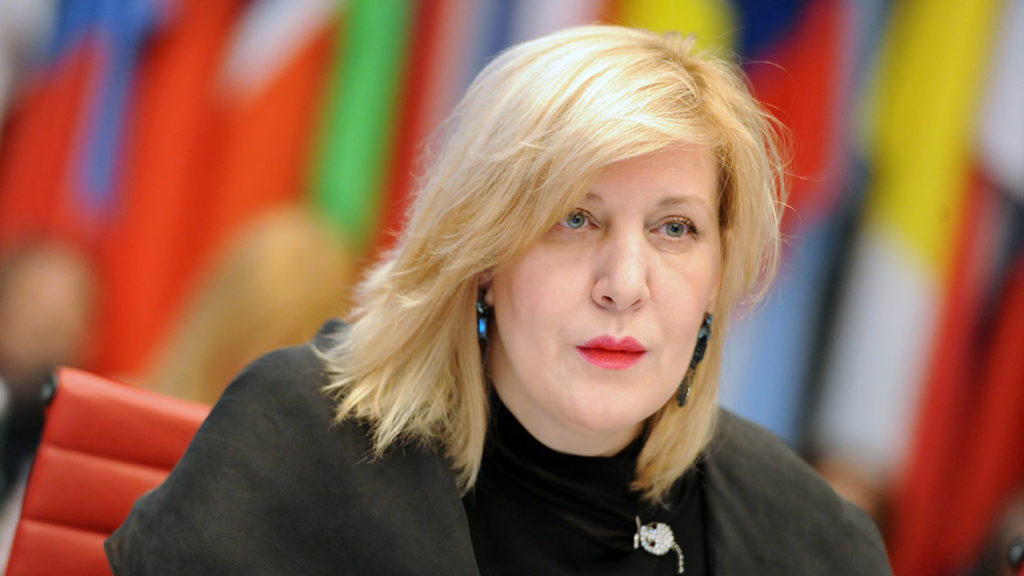22.03.2021 - 16:44
|
Actualització: 22.03.2021 - 17:44
The Council of Europe Commissioner for Human Rights, Dunja Mijatovic, has conveyed her concern to Spain about the growing prison sentences for artists and activists in recent years. “Several provisions of Spain’s criminal legislation have a negative impact, including a chilling effect, on the exercise of freedom of expression, a right of crucial importance
for a free and pluralistic public debate” writes the commissioner in a letter to the Spanish government. She also calls for a reform of the crimes related to insulting the monarchy, exalting terrorism, religious offenses, hate speech and defamation.
The Spanish Minister of Justice, Juan Carlos Campo, has replied to the Council of Europe that they intend to review it, but that they are still studying the reform proposal. “We intend to more clearly limit the conduct punishable in these crimes and adjust the penalties to the seriousness of the conduct” Campo wrote in his response. The Spanish government announced its intention to make these changes following the controversy over the case of rapper Pablo Hasel.
Mijatovic’s letter to the government of Pedro Sanchez is dated 11 March. She says that the crime of exalting terrorism in Spain is problematic because it has an “ambiguous and imprecise” definition, which has led to divergent interpretations in Spanish courts, some contrary to the “international requirements of freedom of expression.” She laments: “Some court decisions in Spain have not correctly determined that the exaltation of terrorism really involves a real, concrete and imminent risk of danger.”
Misuse of terrorism legislation
She also criticizes the Spanish magistrates for interpreting the defendants’ intention in an “abstract” way, regardless of the context and against the jurisprudence of the European Court of Human Rights: “Anti-terrorism legislation can only be applied to the content or activities that they directly involve the use or threat of violence with the intention of spreading fear and provoking terror. ” And she warns that “misuse” of legislation on terrorism can lead to “disproportionate” restrictions on freedom of expression, especially when punishing “statements that do not contain elements of apology of terrorism but incite to other forms of violence or simply are non-consensual, shocking or politically embarrassing.”
The Commissioner for Human Rights also sees the crime of insulting the crown with concern and calls on the Spanish government to reform it along the lines of European human rights standards. In particular, Mijatovic calls on Sánchez to take into account the ECHR ruling on the burning of pictures of the King of Spain in Girona (Stern Taulats and Roura Capellera against Spain), which established a wide margin of criticism for public representatives. “The ECHR considered that political criticism of public authorities and personalities, no matter how provocative and radical, could not be considered hate speech or incitement to violence,” Mijatovic recalls.


